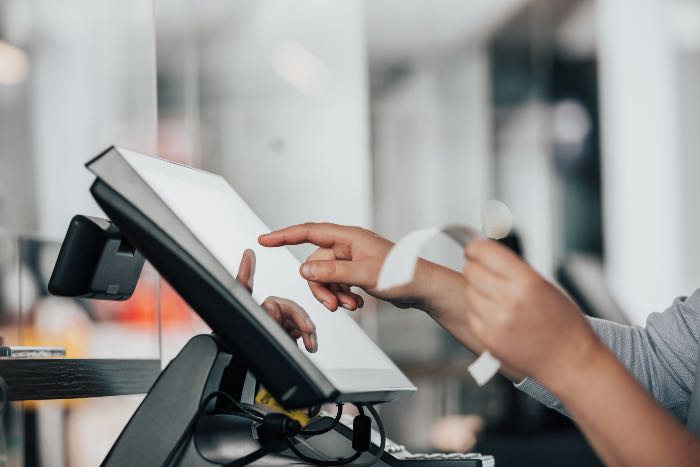
It is far easier to simply hand it to me.
Every cashier asking me if I want a receipt slows the transaction down.
Grocery stores stopped asking “paper or plastic.” It became “is plastic OK?” Then they simply began bagging in plastic.
This evolution was obvious: most people preferred plastic and the ones who didn’t brought their own bags.
Cashiers are rated by the speed of their interactions. Industry standards in drive-thrus measure time spent in line related to number of cars checked out.
The speed and how it is experienced at checkout reflects on the brand. Every McDonald’s drive-thru in my community is excruciating. I could spend the same amount of time in the Chick-fil-a line, but it feels entirely different.
The time required to ask if I want a receipt slows us down. And it does so without improving the experience. Instead, it inconveniences every person who comes through.
The whole idea of being asked about a receipt feels completely backward and ridiculous.
You’re asking me, before I’ve even gotten my food, whether I want proof that I purchased my food?
What if you got my order wrong? And how long will it now take to correct it? Are we going to be picking through trash? Does the cashier even have authorization to look through their transactions?
Every bit of this is nonsense from a systems perspective. But it’s worse from a social one.
It shifts responsibility and changes expectations.
The cashier gives the customer a receipt. That’s the expectation. And the only decision being made is 1) hand it when it’s printed or 2) with the card.
In fact, the cashier is quite literally the one being paid to labor this way.
By asking me if I need the receipt, you’re putting the decision-making burden upon me. But doing so in a way that implies the opposite expectation is more normative: that the customer shouldn’t expect a receipt and must performatively request one.
Like they are saving me from the torture of having to dispose of the receipt myself! Or that I must be some freak who collects receipts. Rather than the one thinking, I just stopped for coffee...
Asking a customer if they’d like their receipt introduces unnecessary complexity with no benefit to pretty much anyone.
It would be far better to hand the receipt to the customer with a compliment. They you both leave the interaction feeling good.
